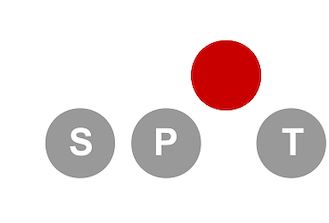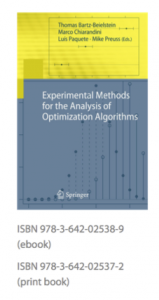Since its online publication on October 26, 2010, there has been a total of 15,581 chapter downloads of the book Experimental Methods for the Analysis of Optimization Algorithms. Here are the detailed download figures:
- 2015: 3,487
- 2014: 5,924
- 2013: 3,390
- 2012: 974
- 2011: 1,344
- 2010: 462
From the reviews:
“This book belongs on the shelf of anyone interested in carrying out experimental research on algorithms and heuristics for optimization problems. … Don’t keep this book on the shelf: read it, and apply the techniques and tools contained herein to your own algorithmic research project. Your experiments will become more efficient and more trustworthy, and your experimental data will lead to clearer and deeper insights about performance.” (Catherine C. McGeoch, Amherst College)
“Here you will find aspects that are treated scientifically by the experts in this exciting domain offering their up-to-date know-how and even leading into philosophical domains.” (Hans-Paul Schwefel, Technische Universität Dortmund)
“[This] book … is a solid and comprehensive step forward in the right direction. [It] not
only covers adequate comparison of methodologies but also the tools aimed at helping in algorithm design and understanding, something that is being recently referred to as ‘Algorithm Engineering’. [It] is of interest to two distinct audiences. First and foremost, it is targeted at
the whole operations research and management science, artificial intelligence and computer science communities with a loud and clear cry for attention. Strong, sound and reliable tools should be employed for the comparison and assessment of algorithms and also for more structured algorithm engineering. Given the level of detail of some other chapters however, a second potential audience could be made up of those researchers interested in the core topic
of algorithm assessment. The long list of contributors to this book includes top notch and experienced researchers that, together, set the trend in the field. As a result, those interested in this specific area of analysis of optimization algorithms should not miss this book under any circumstance. … The careful, sound, detailed and comprehensive assessment of optimization algorithms is a necessity that requires attention and care. As a result, my opinion is that this book should be followed and that it should be at the top of every experimenter’s table.” (Rubén Ruiz, European Journal of Operational Research, 2011, 214(2):453-456)


